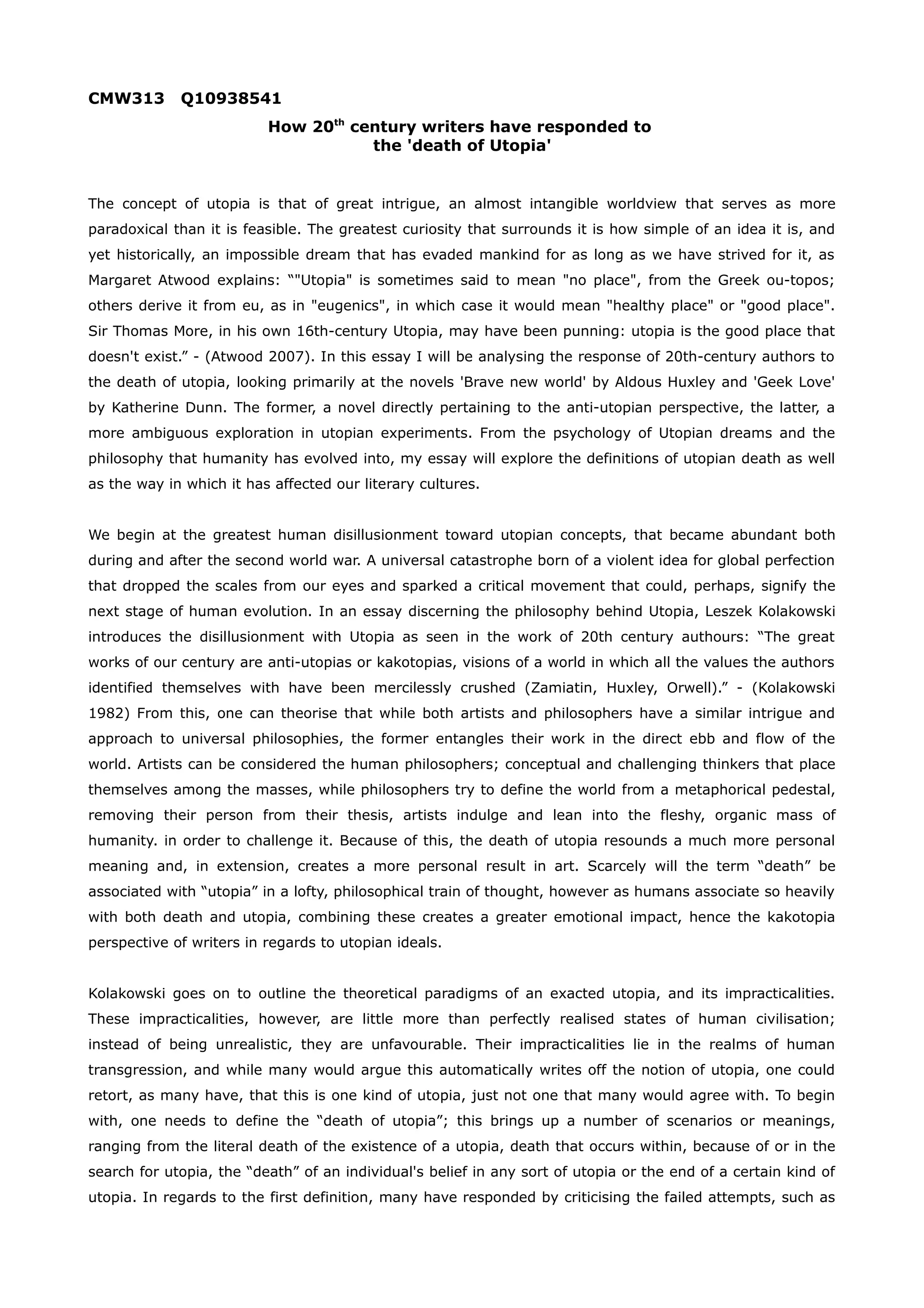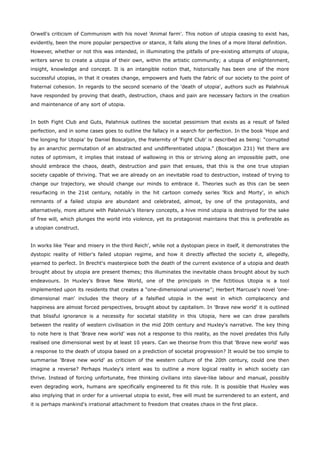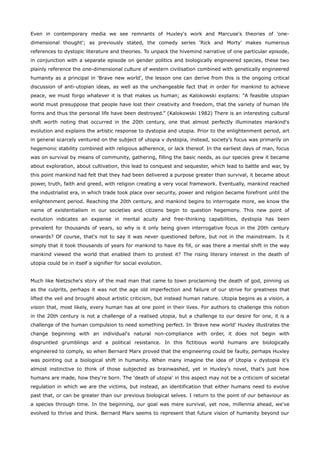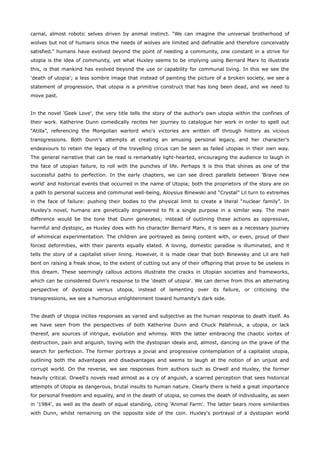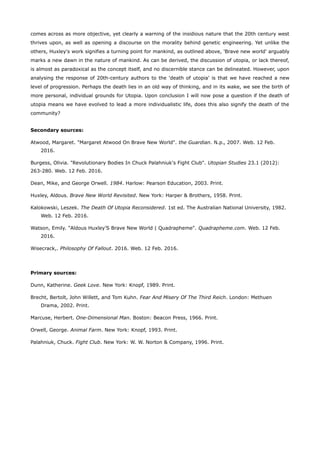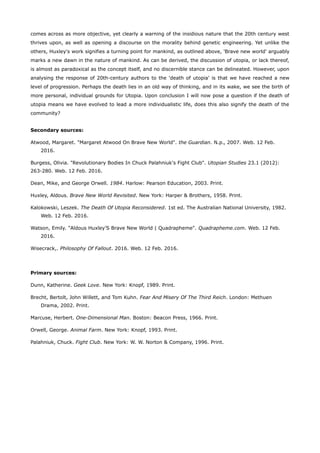20th century authors responded to the "death of utopia" in various ways. Some, like Huxley in Brave New World and Orwell in 1984, directly critiqued failed utopian attempts and the dangers of oppressive regimes that crushed individuality. Others, like Palahniuk, saw value in embracing chaos and destruction. Katherine Dunn depicted a loving yet dysfunctional family in Geek Love, finding humor in utopian failure. The diversity of responses reflected evolving views on freedom, humanity's relationship with community, and whether perfection could ever be achieved.
